This content was published: October 3, 2016. Phone numbers, email addresses, and other information may have changed.
Summer Florida cruise opens world of science and research to student Iris Romo
Photos and story by James Hill
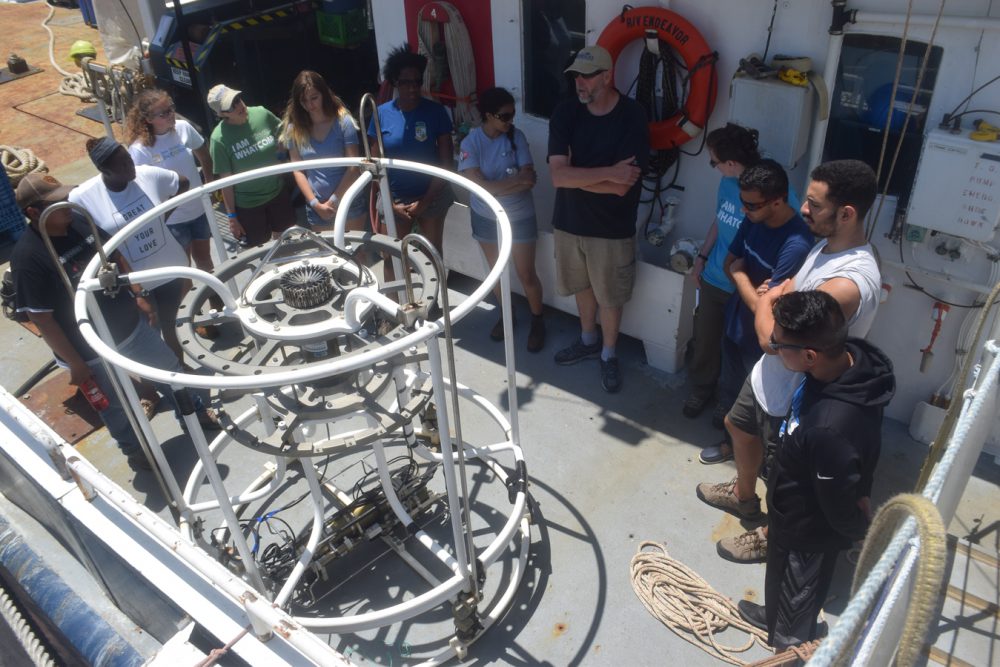 Last summer, Portland Community College geology student and Southeast Portland native Iris Romo went on a Florida cruise, but it’s not the kind you may be thinking of.
Last summer, Portland Community College geology student and Southeast Portland native Iris Romo went on a Florida cruise, but it’s not the kind you may be thinking of.
Romo, 21, won a National Science Foundation undergraduate research experience called Science, Technology, Engineering and Math Student Experiences Aboard Ships (STEMSEAS) to explore the world of oceanography on a five-day adventure. In July, she and ten other students from around the country sailed on the RV Endeavor, the research vessel belonging to the University of Rhode Island and Columbia University, to learn how scientists do their work.
“I really liked the mix of things we got to do,” said Romo, who admitted that trying to focus on work while sailing on the high seas was a challenge. “I got seasickness after nine hours of looking into the microscope! You just have to make it work.
“But the crew was super helpful on topics I knew nothing about and very patient,” she added. “We learned so much and I loved it.”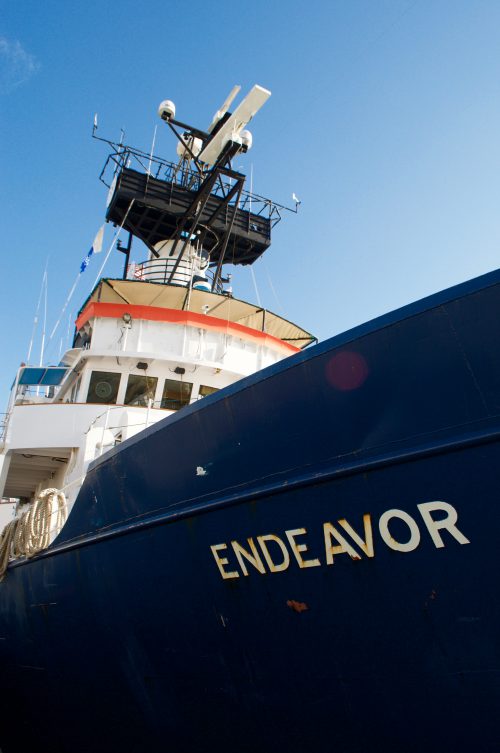
She said her favorite moment was analyzing a sample core from the seafloor taken 30 years ago off the Florida coast. Romo and her fellow student shipmates took smears of the sediment to learn how to document the micro fossils and forams they found in the rock.
“You could see from the top of the core to the bottom there was an actual change in climate from 1986 to now,” said the former Future Connect Scholarship student. “I really couldn’t believe we found that.”
Romo’s adventure in Florida was just one of three trips (the others are in Hawaii and the Puget Sound) that NSF funds annually to engage diverse college students from around the country in STEM research. More than 800 college students applied for these experiences, and only 30 were selected. The lucky ones get to sail with experienced faculty mentors and engage in geoscience and oceanography activities. They get to engage in data analysis of climatology, explore water columns, measure oil seepage and learn knot-tying.
Romo, who once backpacked through Southeast Asia through Carpe Mundi on a Gilman scholarship to learn culture, was particularly blown away by RV Endeavor’s work in netting and analyzing plankton.
“The crew had us go slow as we towed a giant net behind us to collect the plankton,” she said. “I was super excited to view them under a microscope and found how similar they were to the micro fossils.”
Romo’s all-expense paid learning opportunity is a great example of the STEM research that is available to PCC students. She is a member of The Louis Stokes Alliance for Minority Participation (LSAMP) at Portland State University and PCC, which is dedicated to enhancing the undergraduate experience for underrepresented students in STEM. It’s all part of the importance that the college puts on fostering student success to help them excel in their future careers.
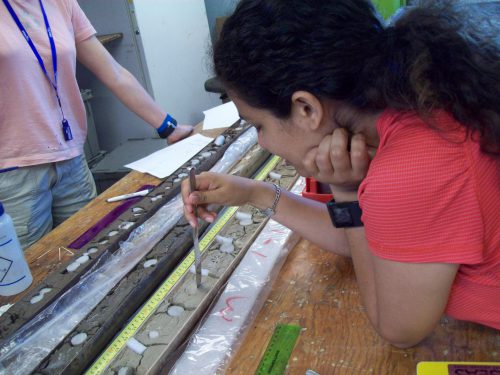 “Her high level of interest in science was apparent from the first day of class,” said Eriks Puris, who has Romo in his geology series at the Southeast Campus and partnered with her on an independent study last winter using 3D printers to make relief models of topographic maps. “She was always excited for every field trip and made it a point to participate fully. It is great that she has stepped up to pursue the opportunities available to her. Undergraduate research experiences and internships are a great way for students to ground truth science as a career possibility, to see if it is really something they are interested.”
“Her high level of interest in science was apparent from the first day of class,” said Eriks Puris, who has Romo in his geology series at the Southeast Campus and partnered with her on an independent study last winter using 3D printers to make relief models of topographic maps. “She was always excited for every field trip and made it a point to participate fully. It is great that she has stepped up to pursue the opportunities available to her. Undergraduate research experiences and internships are a great way for students to ground truth science as a career possibility, to see if it is really something they are interested.”
Romo was always determined to make her college experience an incredible one. After graduating from David Douglas High School four years ago, she started college in Future Connect, the PCC Foundation’s support program that serves first-generation or low-income students. A Pell Grant recipient as well, Romo was lured by PCC’s dual enrollment agreement with Oregon Institute of Technology and at first wanted to earn a radiology degree, but after a few terms she fell in love with geology.
Now, she hopes to transfer to a university like Oregon State to continue her geology education.
“People at PCC have been really nice,” Romo said. “At community colleges there are people of all age groups, from high school graduates to older returning students, and that diversity makes learning the best. It builds community and helps you find purpose.”


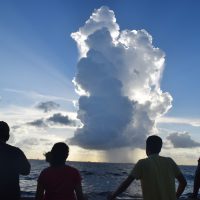
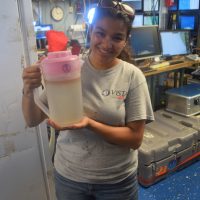
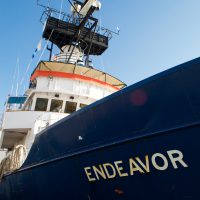
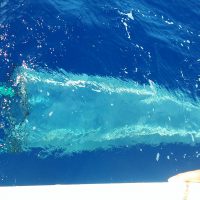
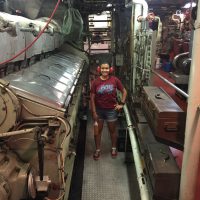
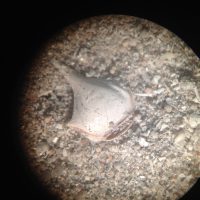
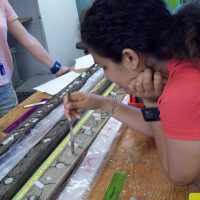
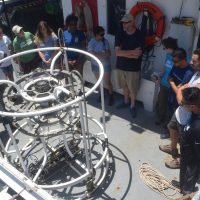
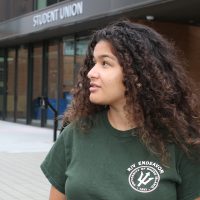
Keep reaching for the stars (or earth) Iris! Sounds like it was a wonderful adventure. I am so happy to have met you this year, and have you working on our Student Outreach Squad. All the best!
Wow! What a great story! Iris, it’s amazing and inspiring how you’ve found and taken advantage of so many awesome resources! Maybe you could teach a class on how to find them! So cool!
Iris, congratulations, this is fantastic!